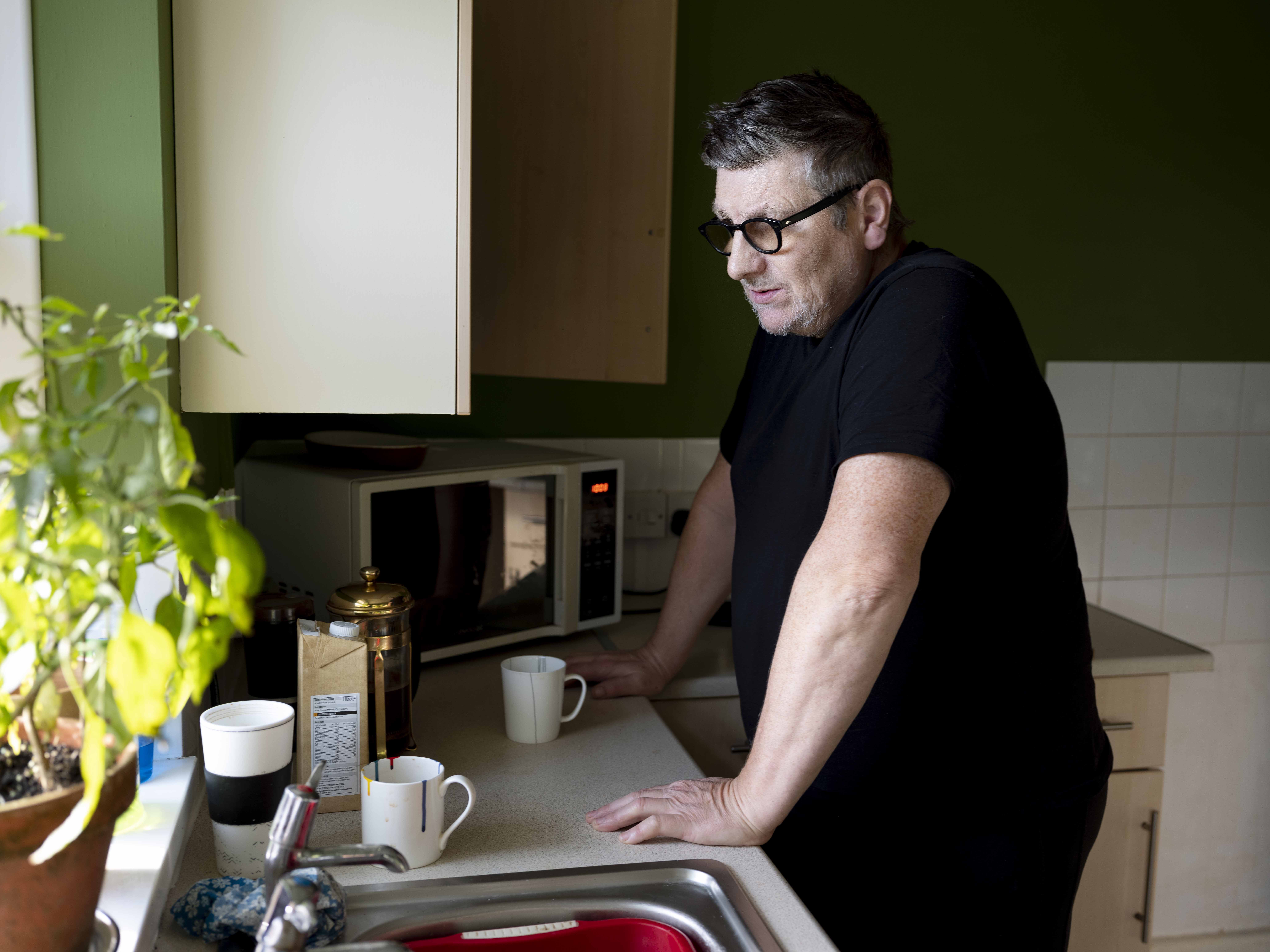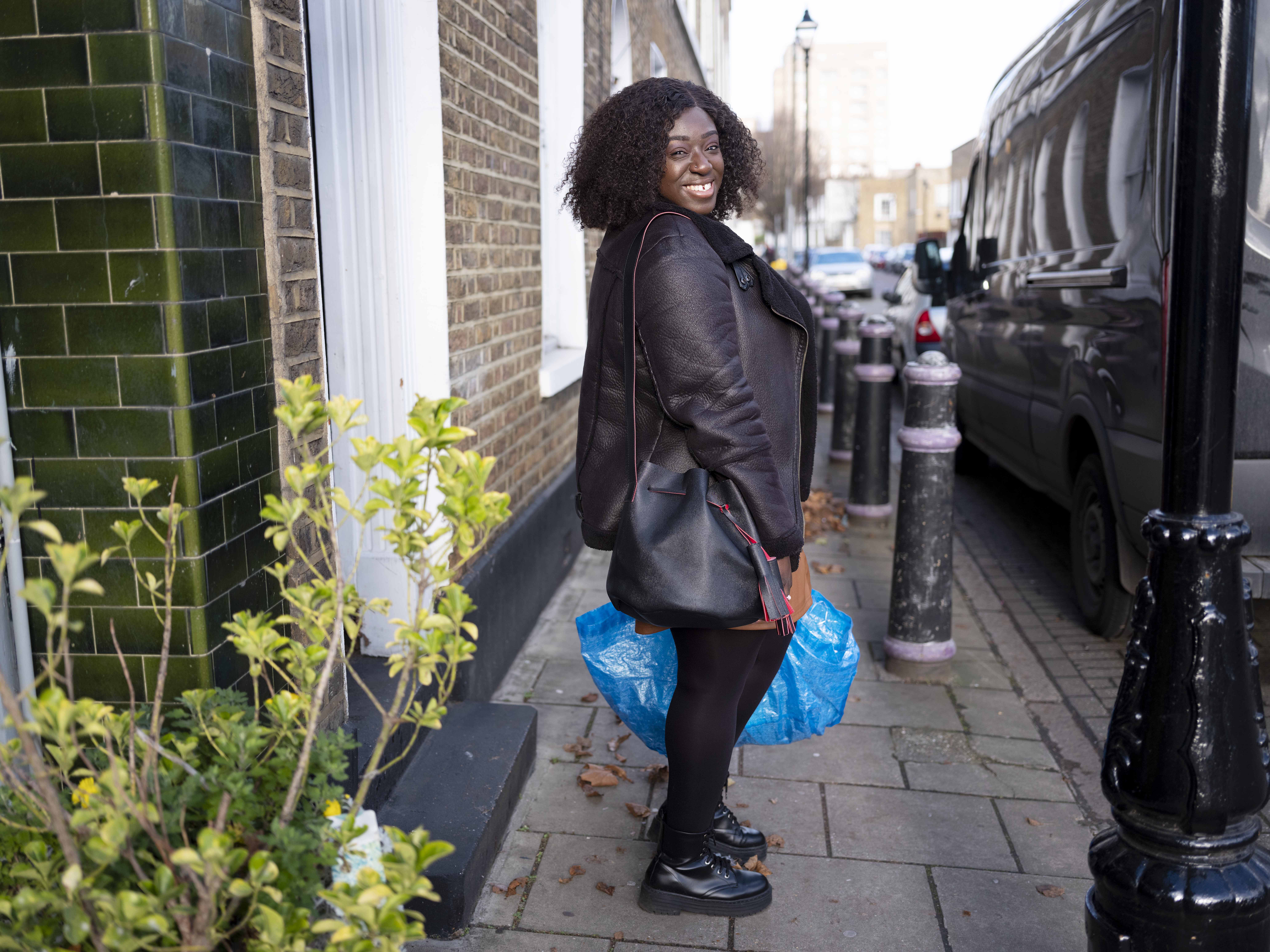We don't always have complete control over our weight, there are many factors that can impact weight loss or weight gain. But making small changes to how we interact with our immediate environment can still make an impact. From planning healthy meals to staying on our feet, we've put together a list of tips and tricks that we hope you find helpful.

Food is everywhere. Tasty treats stare at you through shop windows. Fast food adverts fill advertising billboards. And the local takeaway pumps air from the kitchen out onto the street – the smell of instant satisfaction.
We try to eat a balanced diet, and in moderation, but triggers in our environment can activate our desire to eat energy-rich food. So even though we're not hungry, we get into the habit of picking up that extra fizzy drink or packet of crisps.
We can’t always avoid these triggers in our wider environment. Instead, take a look at your immediate environment, such as your home or work place. Even small changes can make a big difference, as you build healthy lifestyle habits over time.

Below, we’ve put together a list with some great tips and tricks:
01
Plan and shop for healthy meals that fill you up
- Try not to go shopping for food when you’re hungry.
- Try to buy more food that’s low in calories but high in protein and fibre. For example, try fresh fruit and vegetables, eggs, yoghurt, fresh meat, whole grains, beans, or lentils.
- Keep your tummy and wallet happy by buying vegetables that are in season – they are cheaper and also taste great.
- If it’s not at home, you can’t eat it. So be mindful of what you put in your shopping trolley.
02
Make it harder to find, prepare and eat tempting food at home
- Try to keep food out of eyesight at home. And if you do buy high-calorie foods, put them at the back of the fridge or buried away at the back of the pantry.
- Buy food that makes you work to eat it. For example, oranges that you first have to peel, or nuts that have to be cracked open one at a time.
- The strictest approach is to only keep food at home that has to be cooked or heated before it can be eaten. This reduces the chance of snacking between meals.
- Are there foods that you find especially rewarding to eat? Make a habit of only eating them occasionally, but not every day.
- It can be hard to find the energy to cook at the end of a long day. So how about using some hours over the weekend to cook some meals you love and store them in your fridge or freezer?

03
How to feel comfortable eating out or joining a social gathering
- Find the restaurant menu online ahead of time. That way you can comfortably plan what you will eat.
- If you’re heading to a social event, how about offering to bring a dish or food course? That way you can share your new recipes with others.
- Try to find an alternative to alcoholic drinks that work with your weight loss plan. If you drink alcohol to relax or celebrate, try to keep it to just one low-calorie drink a day, like a small glass of wine.
- If anyone notices that you are avoiding certain foods and makes a comment, you can reply with something like: “I’m just trying to eat more healthily” or “I’m just watching what I eat”. You don’t have to explain any more than that.
- Remember to be kind to yourself. Healthy weight loss is gradual and sustainable, you need to find what works for you whilst staying within your calorie limit. No matter what you eat when you are out, give yourself credit for trying, and see it as an opportunity for learning.
- If you're going out for dinner with friends and also want to enjoy eating and drinking, think about what you can eat during the day or do some extra physical activity. This can give you a buffer for those extra calories that we tend to consume while in good company.
04
Find simple ways to stay active
- Only a little extra physical activity can make a big difference. And the simplest way to be more active is to fit it into your existing routines. For example, instead of meeting in a café to catch up with friends, grab your coffee to-go and take a walk together.
- If possible, take the stairs instead of a lift or escalator.
- If you have to sit at a desk all day, set a reminder to stretch and move a little every thirty minutes. It doesn’t have to be much, just fetch a glass of water or go to the toilet. And instead of emailing or calling a colleague, walk over and have a chat instead.
- Exercise and physical activity don’t have to be a drag. Find something you enjoy and that fits your schedule.
Support
A last point is to think about the people who are close to you, like friends, family, and colleagues. They could be a source of support and may also benefit from the changes that you make to your environment.
Remember
Remember that no single solution is right for everyone. Some people might find it easier to be more active, and others might get really excited about meal prepping on the weekend. Either way, taking control of your immediate environment is one of the key elements to successful weight management.
References:
1. National Health Service (NHS). Lose weight. (Website - Accessed October 2025).
2. Public Health England. 2017. Changing Behaviour: Techniques for Tier 2 Adult Weight Management Services. (Website - Accessed October 2025).
3. Sumithran P, Prendergast LA, Delbridge E, et al, 2011. Long-Term Persistence of Hormonal Adaptations to Weight Loss. N Eng J Med. 365(17):1597-604.
4. National Health Service (NHS). East Lancashire Hospitals. Behaviour modification ideas for weight management. (Website - Accessed October 2025).
5. National Health Service (NHS). 2021. Live Well. Physical activity guidelines for adults aged 19 to 64.(Website - Accessed October 2025).
6. National Health Service (NHS). Overview: obesity. Updated 2023. (Website - Accessed October 2025).
UK25OB00083 | October 2025